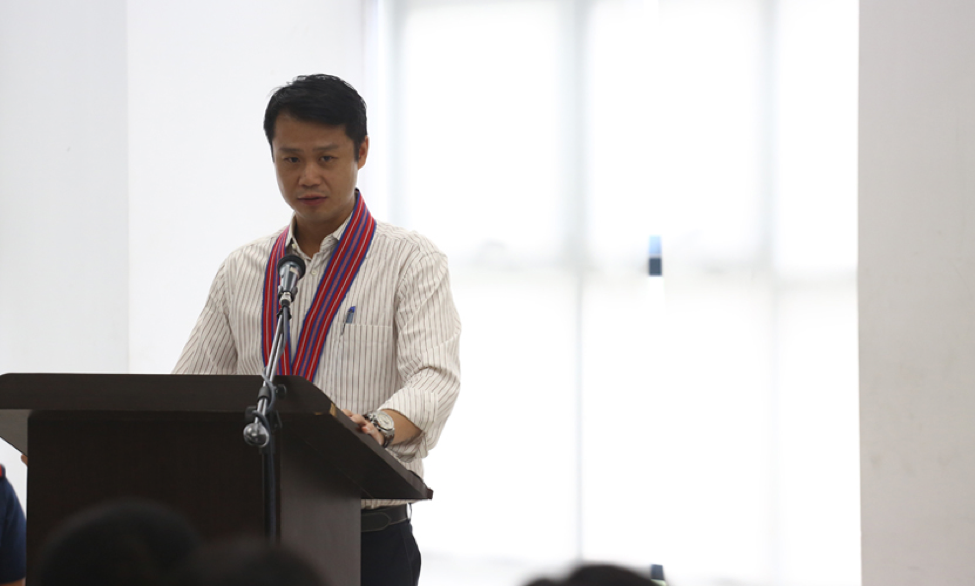
Nationalist People’s Coalition (NPC) Congressman Win Gatchalian has proposed a law that would fully subsidize tuition fees in all state universities and colleges (SUCs) for any undergraduate and certificate degree.
House Bill No. 5905, to be known as the “Free Higher Education Act”, seeks to cover all Filipino citizens who are either enrolled at the time of enactment of this bill or any time after.
“This legislation seeks to provide for a full tuition subsidy for all current and future enrollees in SUCs. Qualified Filipino citizens will be able to avail of the full tuition subsidy, provided they maintain good academic and moral standing,” Gatchalian said in his landmark bill.
Related News: More than 6M out-of-school youth to benefit under Magna Carta bill
“The tuition to be paid by the students will instead be paid directly by the government to the SUCs. This is doable given the fact that the proposed 2016 budget is now P3 trillion,” the Valenzuela City lawmaker said.
Gatchalian, a majority member for the House Committees on Basic Education and Culture and on Higher and Technical Education, said tertiary schooling should also be given the same priority as basic education given its individual and social benefits.
The Family and Income Expenditure Survey (FIES) 2012 shows that a household led by a college graduate earns an average family income that is more than twice that of a family headed by one who has only finished high school.
“There are higher private returns in investing on tertiary education than secondary school education,” the lawmaker said. This shows the singular power of higher education in improving economic outcomes for the neediest segments of our population,” Gatchalian pointed out.
Gatchalian said increased public expenditures on higher education will also benefit the economy in the long run as there will be more scientists and engineers who can contribute to innovation, research, and development of new products, which in turn generate employment.
Related News: Gatchalian to visit more schools to hold information drive vs hazing
“Higher education allows a country to produce and train more engineers and scientists who play a vital role in the uptake of technology. By innovating or replicating technologies from more advanced economies, such specialists will contribute toward stimulating entrepreneurial activity and in turn help in job creation. Thus, producing a better-educated workforce has immense implications on collective social and economic development, making inclusive growth a tangible reality,” Gatchalian explained.
The education-advocate solon gave his assurance that the government is capable of making SUCs tuition-free given the country’s good economic performance, improving tax collection, and the unused allocation for infrastructure. An initial amount of P10.5 billion shall be initially appropriated from the Presidential Social Fund to implement the proposed measure.
“Right now it’s possible,” Gatchalian said. “Our proposed budget in making SUCs tuition-free is only less than one percent or 0.35 percent of the P3-trillion national appropriations for next year. This bill will benefit around 1.3 million students enrolled in SUCs.”
The lawmaker noted that emerging economies have already followed in the footsteps of developed countries in Europe in prioritizing higher education, saying: “Instituting tuition-free tertiary education in SUCs would increase access to the Philippine higher education system to the level of developed countries with firm commitments to public education, such as Denmark, Finland, Germany, and Sweden, as well as strong emerging economies which have followed in their footsteps, such as Brazil and Chile,” Gatchalian said.
HB 5905 also provides for the creation of the Special Tuition Subsidy Fund, which shall be managed by the Commission on Higher Education (CHED). The CHED will also be responsible for creating a mechanism to be used by SUCs, which will detail the exact amount of tuition fee subsidy availed of by eligible students. It will also have to give to Congress a midterm report detailing the enrollment rate, student demographics, gross tuition receipts, disqualification and ineligibility, among others.
The president of each SUC will be required to submit to CHED a report on the number of units enrolled availed of by eligible students and the tuition fee amount due. The said report has to be given within five days after the last day of the late registration for each semester. They also have to submit to CHED an accountability report. (Monica Cantilero)


